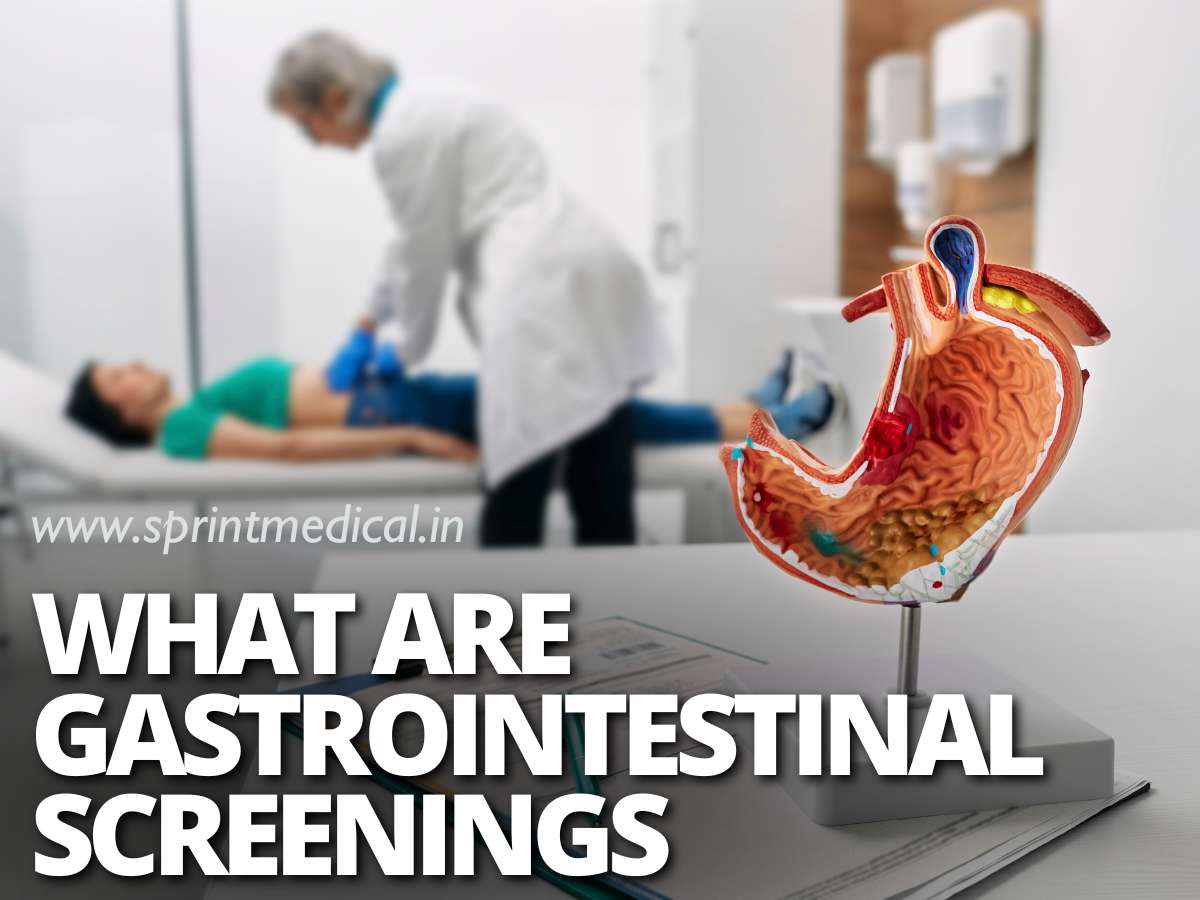11/07/2023 / Digestive Disease & Gastroenterology
What are Gastrointestinal Screenings: Benefits and side effects of screening
Screening are often done for finding out cancers but these tests have downsides too.

Table of Content
Introduction
Screening is looking for cancer before the person has shown any symptoms. When any cancer-related tissues are found, it becomes easier to treat the cancer in the early stages. In this article, you will know the gastrointestinal screenings for stomach (gastric) cancer and the risks associated with it.
Stomach (Gastric) Cancer
Stomach is a J-shaped organ that is a part of the digestive system which helps in processing the various nutrients in foods. In stomach cancer, cells abnormally grow from any part of the stomach and spread throughout the stomach. The risk factors of stomach cancer
Symptoms of Stomach (Gastric) Cancer
Signs and symptoms of stomach (gastric) cancer include,

Trouble swallowing
Black colored stools
Feeling tired
Weight loss
Nausea
Vomiting
Indigestion
Heartburn
Bloating
Belly pain
Risk Factors Of Stomach
There are many risk factors of stomach cancers like,

Having Helicobacter pylori infection, Epstein-Barr virus infection, chronic gastric atrophy or pernicious anaemia.
Presence of polyps in the stomach
Having family members who are affected by gastric cancer
Having a diet that is high in salt and with fewer fibers
Eating too many processed foods
Smoking cigarettes
Stomach (Gastric) Cancer Screening
Several types of screening tests are used to find the presence of stomach cancer. They are,
Barium Meal Gastric Photofluorography
The patient swallows the white metallic compound, barium which coats the oesophagus and stomach. The barium increases the visibility of the internal organs and are later seen through series of x-ray imaging.
Upper Endoscopy
In upper endoscopy, an endoscope (a thin the like instrument with light and lens) is passed into the mouth through the oesophagus to inspect the digestive tract from stomach to duodenum (upper part of intestine).
Serum Pepsinogen Levels
This is the test that measures serum pepsinogen levels in the blood. Low levels of serum pepsinogen leads to chronic gastric atrophy which can lead to stomach cancer.
Side Effects Of Screening
Though gastric screening can be useful in identifying stomach cancers, there are side effects like,

Endoscopy-induced infection
Heart or lung problems
Severe bleeding that can be life-threatening
Allergic reactions to medicines used in screening procedures
Risks Of Stomach (Gastric) Screening
Other than side effects of screening gastric cancers, there are also few risks of tests like,
Finding Out Stomach Cancer May Not Prove Life-saving
If you have advanced stomach cancer, screening tests may not help you to live longer or get treated as most cancers don't show enough symptoms during early stages.
False Negatives Can Occur
There are many chances of false negative and such a person may delay the medical treatment, which could have probably made them live longer.
False Positives Can Occur
A false positive can also occur which is usually followed by more procedures that also holds many risks and side effects.
Take-Home Points
Screenings are usually done to look for cancer before any obvious symptoms.
Stomach or gastric cancers are found by screening techniques like barium meal gastric photofluorography, upper endoscopy and serum pepsinogen levels.
Heart problems, lung infections, punctures in the gastrointestinal tract and bleeding are some of the risks associated with gastrointestinal screenings.
References
FAQ on What are Gastrointestinal Screenings
Standard gastrointestinal screenings used are barium meal gastric photofluorography, upper endoscopy and serum pepsinogen levels.
A gastroenterologist is someone who specialises in treating the diseases and disorders that affect the digestive system - esophagus, stomach, small intestine, large intestine, rectum and anus.
Bleeding, bloating, constipation, diarrhoea, heartburn, nausea, vomiting, incontinence and pain in the belly.
You should keep your stomach empty before you are getting yourself a gastrointestinal test. You can drink some clear fluids (6 ounces) before 3 hours of the test.
Yes! If you leave out the symptoms of gastrointestinal symptoms unattended for a long time, it may get serious.
If you have gastrointestinal problems you should avoid fried foods, citrus foods, artificial sugars, high-fiber foods, beans, cruciferous vegetables, spicy foods, dairy foods and peppermint.
Gastro tests can take anywhere from 30 minutes to 2 hours.
A gastroenterologist is a doctor who treats all gastrointestinal problems.
Yes! Bowel infections usually go away in a few days. It is important to have plenty of water and oral rehydration drinks during gastric infections.
Comments ( 0 )
No Comments
Leave a Comment
Related Posts
15 Tips to improve your Digestive Health
Gut health determines your overall health. So it's important to take care of your digestive system.
Keerthana A P
Diagnostic tests for gastrointestinal disorders
Gastroenterological disorders are more than common now due to unhealthy food and lifestyle habits. Know the procedures and tests used for their diagnosis.
Keerthana A P
Best Foods For Gut Health
Your gut is a major part that is linked with your immunity and its health is determined by the gut flora. With the right vegetables, you will have a healthy gut.
Health & Wellness Tips
Subscribe to our blog